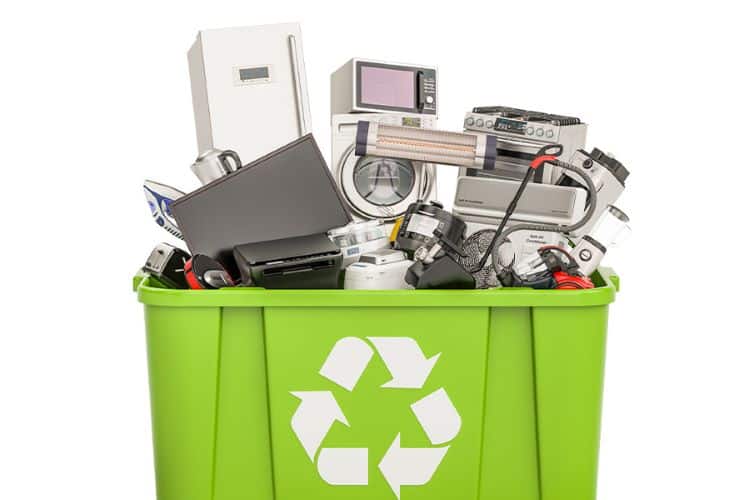New E-Waste Management Rules: A Step Forward

In November 2022, the Ministry of Environment, Forest and Climate Change introduced the E-Waste (Management) Rules, 2022. These rules replace the previous E-Waste (Management) Rules, 2016, and came into effect on April 1, 2023. The primary goal of these new regulations is to manage electronic waste (e-waste) in a way that protects both public health and the environment. With the rapid growth of technology, e-waste has become a significant concern. The new rules aim to address this issue by promoting responsible recycling and disposal practices.
Objectives of the E-Waste (Management) Rules, 2022
The E-Waste (Management) Rules, 2022, are designed to ensure that e-waste is handled in an environmentally sound manner. One of the key components of these rules is the implementation of an Extended Producer Responsibility (EPR) regime. This requires manufacturers, producers, refurbishers, and recyclers to register on a portal developed by the Central Pollution Control Board (CPCB). By doing so, the informal sector can be integrated into the formal recycling process, ensuring that e-waste is recycled responsibly.
The rules also introduce provisions for environmental compensation, verification, and auditing. These measures aim to promote a circular economy by encouraging the recycling and reuse of electronic products. The rules align with the broader goals of the Swachh Bharat Abhiyan, which emphasizes waste reduction, reuse, and proper disposal. By fostering a culture of recycling and responsible disposal, these regulations contribute to environmental sustainability and resource conservation.
Responsibilities of Urban and Rural Bodies
Under the E-Waste (Management) Rules, 2022, both urban and rural local bodies have specific responsibilities. According to Schedule V of the rules, these bodies must ensure that e-waste mixed with municipal solid waste is properly segregated and collected. They are also tasked with channeling this waste to registered recyclers or refurbishers. This is particularly important for orphan products, which are items that no longer have a manufacturer or producer responsible for their disposal.
Local bodies are expected to facilitate the establishment of e-waste collection and disposal systems. They will also conduct training sessions to build the capacity of their staff in managing e-waste. This collaborative effort aims to create a more efficient and effective e-waste management system across the country. By empowering local bodies, the government hopes to improve the overall management of e-waste and reduce its environmental impact.
Producer Responsibilities and Public Awareness Initiatives
Producers of e-waste have significant responsibilities under the new rules. They are required to register on the EPR portal and set targets for managing e-waste. This includes creating awareness through various communication channels, such as media, publications, and advertisements. Producers must also file quarterly and annual returns on their e-waste management activities.
To enhance public awareness and establish effective e-waste recycling infrastructure, several initiatives are being implemented. The Action Plan for the Management of E-Waste is being enforced through State Pollution Control Boards (SPCBs) and Pollution Control Committees (PCCs). This plan includes mass awareness campaigns to educate the public about e-waste management. Additionally, efforts are underway to identify and regulate informal traders and recyclers of e-waste.
The government is also working to improve transparency and stakeholder engagement through the EPR portal. This includes auditing stakeholders and managing uncollected, historical, and orphaned e-waste. By coordinating with state governments and local bodies, the initiative aims to build capacity for effective e-waste management. Public awareness programs will further encourage responsible recycling and disposal practices among citizens.
In conclusion, the E-Waste (Management) Rules, 2022, represent a significant advancement in managing electronic waste in India. By establishing clear responsibilities for producers and local bodies, and promoting public awareness, these rules aim to create a sustainable and environmentally friendly approach to e-waste management.
Observer Voice is the one stop site for National, International news, Sports, Editor’s Choice, Art/culture contents, Quotes and much more. We also cover historical contents. Historical contents includes World History, Indian History, and what happened today. The website also covers Entertainment across the India and World.

